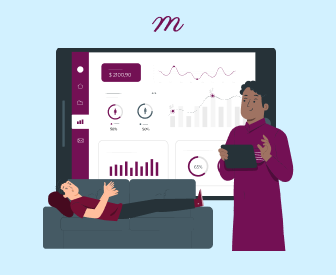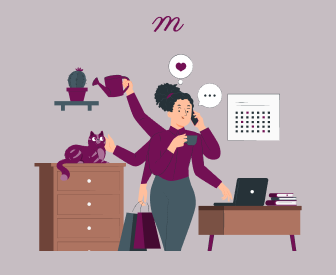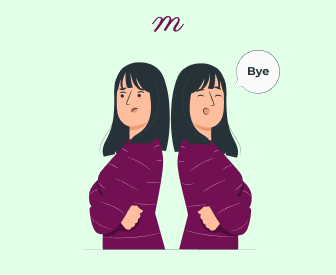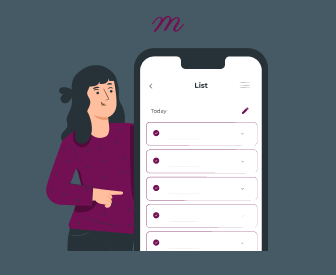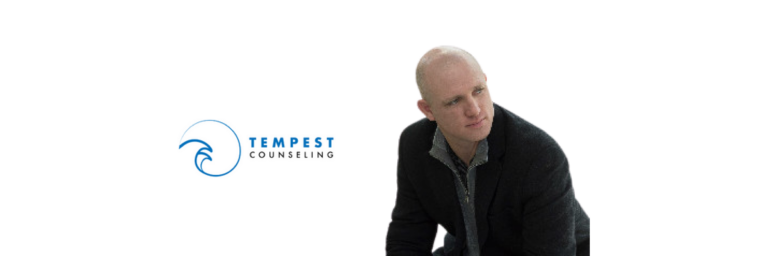Have your progress notes written for you automatically
As a clinician, you may be wary of the self-help therapy apps or of AI replacing you as a therapist. There may be a concern that these apps will take potential clients or hurt your therapy practice from thriving. However, there are some extremely useful and productive apps to use as a therapist with your clients that will actually strengthen your thriving practice. Some apps provide support outside of a session, coping tools, mood tracking, and other monitoring tools that a clinician can use to their advantage. Below is a list of the top 10 best apps for therapists to use with clients.
Calm
The Calm app is one of the most popular mental health apps that provides a wide range of guided meditations, breathing techniques, sleep meditations, peaceful music, bilateral music, narrated stories, and much more. I use this in sessions with clients at times if they need meditation to get more grounded or mindful at the end of the session. I also recommend the app for outside of a session as a coping tool and a way to gain more mindfulness, and calm, and assist with a racing mind. A big perk to the Calm app is that many insurance companies such as Kaiser Permanente provide the Calm app free to their members, and the cost otherwise can be manageable at $14.99/month or $69.99 annually.
Headspace
Headspace is similar to Calm, and nearly just as popular. Headspace is also provided free to certain insurance plan members, and who doesn’t love having access to something free? Headspace also provides various meditations, sleep soundscapes or music, mindfulness help, breathing exercises, and tools to help with focus. Headspace also offers some other helpful tools including healthy ways to move your body like yoga, helpful podcasts, collections of presentations on mental health topics, helpful videos to work through various problem areas, and much more. They also offer direct care with a therapist or coach, but this costs extra on top of the $69.99 annual membership. If you can access Headspace for free based on your insurance plan the direct care of a therapist or coach will typically cost extra as well.
This app is very helpful because of the wide range of tools that it offers,and the wide range of problem areas that the app has helpful information on. Headspace can be used by clients outside of therapy sessions as a coping tool, or a therapist can use the app in a session for psychoeducation or for practicing mindfulness/relaxation techniques. A great compliment to any therapeutic relationship.
My Possible Self
If you are looking for an app to recommend to clients that is free and provides a wide range of information and tools My Possible Self is a great resource. The app has so much to offer and is free! The app includes breathing exercises, a mood journal, mood tracking, progress tracking, mental health-related podcasts, sleep support, crisis support, ways of sharing progress or entries with others, helpful tools for nutrition and exercise, and guidance with self-love. The crisis support area lists various support groups, crisis numbers, and helpful information if you or someone you care about is in crisis. It is a very well-rounded and thoughtful app that is offered free of charge.
My favorite piece of this app is being able to have clients share journal entries or progress check-ins with me as their therapist. I’ve had many clients find this app beneficial outside of session, and it allowed problem areas to be tracked and further processed in session. This app provides an easily accessible,and free tool to allow clients to continue their healing journey outside of the therapy room.
Symptom & Mood Tracker by Bearable
This app is designed for people experiencing chronic pain as well as mental health complications. This app provides mood tracking, symptom tracking, logging habits, self-care, reminders for medications or treatments, and many services to help the management of co-occurring chronic health and mental health conditions. The app was designed for patients who have experienced navigating the management of both chronic pain symptoms and mental health symptoms. A therapist can utilize this app to assist in pinpointing the source or origination of symptoms. Mental health symptoms can be the source of chronic pain, chronic pain also impacts our mental health, and sometimes it’s difficult to know which is coming first or how best to cope with them. This app keeps track of trends and makes it possible to be proactive about your physical, and mental health symptoms. With this, the app can improve the success of therapy to have your client utilize outside of sessions to better understand what the client is experiencing on a day-to-day basis, and in turn, assist with preparing beneficial treatment interventions to use while in session.
This app has a free version that provides a lot of helpful tools and also has a subscription option that is $34.99 annually. The subscription option combines aspects of several types of tracking apps from Bearable into one convenient place. You can log your moods, physical or emotional symptoms, activities, medications, and much more at a reasonable price.
CBT Companion by Therapy App
This app is a wonderful device to complement the use of Cognitive Behavioral Therapy with clients. CBT is an evidence-based treatment option for a multitude of mental health diagnoses and symptoms. It provides CBT information, exercises, and tools that help change unhelpful thought patterns in an easy-to-use app. If you have clients that you are using CBT with, this app helps reinforce what you are using in session. If you are treating clients with anxiety, depression, anger, stress, OCD, or PTSD this app can also be used to complement other treatment interventions. CBT has been shown to be effective in helping treat many mental health diagnoses and has been proven to improve most mental health symptoms. This will increase the client's using tools and interventions outside of sessions, and ultimately assist with client progress. Unfortunately, this app isn’t free, and in order to use the full version of the app you have the option of being billed $9.99 monthly, or a discounted price of $49.99 every 6 months.
Dare: Anxiety and Panic Attacks
This is also an evidence-based training program that helps clients who struggle specifically with anxiety, panic attacks, insomnia, and worry. This app is available in a free version that gives limited access as well as paid subscription options of $9.99/month or $59.99/year. In the free version, there are coping tools and videos available to help clients deal with anxiety, stress, panic, worry, and insomnia. However, of course in the paid version you have full access to information videos, coping tools, meditations, success stories, mood/thought trackers, live webinars, masterclasses, and “daily dares” that are daily tasks or challenges that address various anxiety related problem areas.
As a therapist, this app would be beneficial to use with clients because the client can track their mood, progress, and thoughts in an organized app to share during sessions. They can also use the app to easily access coping skills, be reminded of what is helpful in times of crisis, and hear success stories that give them hope. Again, it would be a very helpful complement to therapy with clients who struggle with anxiety, panic, worry, or insomnia because it promotes putting the tools and knowledge to use outside of therapy sessions.
Quenza
This app was designed by therapists for therapists to use in best managing their private practice. The app not only has features that are designed to help clients but also provide therapists with useful private practice management tools. It allows therapists to successfully interact and engage with clients on a safe platform. The app has tools that make it easy for a therapist to send and schedule homework exercises, intake forms, and inspirational content. The app also has a client progress tracker feature which allows therapists to deliver the best care.
Furthermore, therapists can use the app to streamline, store, and manage digital forms or paperwork which improves organization and lessens the time spent on administrative duties. Quenza also offers connections to a community of practitioners where therapists or mental health coaches can reach out to each other to discuss difficult cases or get ideas on treatment interventions. As a therapist, I really like the idea of an app that provides tools, worksheets, and resources to clients as well as provides practice and business management tools to the therapist. One of the biggest benefits is that the therapist can connect with the client on the app, and send materials or documents to them directly versus the client navigating an app on their own, and picking what resources would be best to access. Some clients may need more direction and oversight on homework assignments, or in accessing coping tools.
The app doesn’t have any free version available at this time. The app has 3 versions to choose from: Starter which is $27/month for limited access, Plus which is $47/month for partial access, and Pro which is $87/month for full access to all features.
Stop, Breathe, & Think
This mobile app was designed to help people cope with depression, anxiety, stress, and sleep issues through mindfulness meditation. Mindfulness practices are shown to be helpful in coping with a wide range of mental health symptoms such as anxiety, insomnia, anger, irritability, intrusive thoughts, depression, mood swings, flashbacks, panic, and much more. This app provides a quick and simple way to access mindfulness exercises, tools, and meditations outside of sessions. A therapist can simply use this app in sessions as well if they are in search of a good mindfulness practice to use or would like to play a meditation for a client, and they can recommend the client use it as a coping tool outside of sessions. The app also offers a large amount of content for clients to choose from. The app is available for $9.99/month or $58.99/year and has options that are suitable for people ages 5 and up.
How We Feel
The How We Feel app was created by a combination of therapists, scientists, designers, and engineers to provide a tool that assists people in identifying and understanding their emotions. The process of identifying and understanding their emotions then allows people to find strategies that are proven to best handle emotions at the moment. This app would be a great compliment to therapy because it would allow clients to identify their emotions, track them, and have go-to coping skills or helpful responses for them. This app could be used in sessions to teach clients how to identify their emotions, what they may mean, and how to cope with them. It can also be used outside of a session to help the client continue the work of therapy outside the therapy room.
All too often as a therapist, I have clients who have a difficult time identifying their emotions and that aren’t comfortable with identifying them because they aren’t sure what to do with them, or what will help. This app helps organize this whole process of navigating feelings and empowers clients to learn how to manage them. We aren’t born knowing what emotions are, how they feel, or what to do with them when we feel them so this app teaches you those skills in a simple way. This app is a fabulous option because it is completely free, with brief ads. It includes information, coping tools, and an emotion tracker journal which can be easily shared with a mental health provider.
Mental Disorders and Treatments
This app is created by Knock Lock for therapists, clients, and students. This app has a comprehensive list of mental disorders as well as treatments for those disorders. It would be helpful to use with clients in session for psycho-education purposes and provide easy-to-understand information on mental health diagnoses. Some clients find it helpful to understand their diagnosis more, possible symptoms, and proven treatment interventions. Of course, this app may not be helpful to recommend to all clients for the sole purpose of looking up mental disorders, and would be up to the therapists’ discretion of when to use it. The Mental Disorders and Treatments app also has the following features: meditation music, guided meditations, mudras for mental well-being, yoga, overall health tips, and helpful mental health articles. The app provides education, resources, and support that all prioritize mental health.
This app has a free version with a lot of the features available to use, but there are in-app ads during the experience. There is also a premium version of the app that has cost options of $0.99, $1.99, or $3.99. These one-time costs are a donation to help support the company Knock Lock and the services they provide with their apps.
The Bottom Line
If you are a practicing therapist consider using apps with your clients for either coping tools, tracking tools, connection and communication outside of session, or to manage the administrative part of your practice. These were my top 10 as a practicing therapist, but there are a multitude of available apps that are designed for self-care, mental health, and wellness coping to look into. I encourage you to give some of these a try if you are looking for a great mental health or wellness app.


